 BOOKS
BOOKS « In Which You Must Now Proceed Elsewhere »
 Thursday, November 4, 2010 at 11:56AM
Thursday, November 4, 2010 at 11:56AM 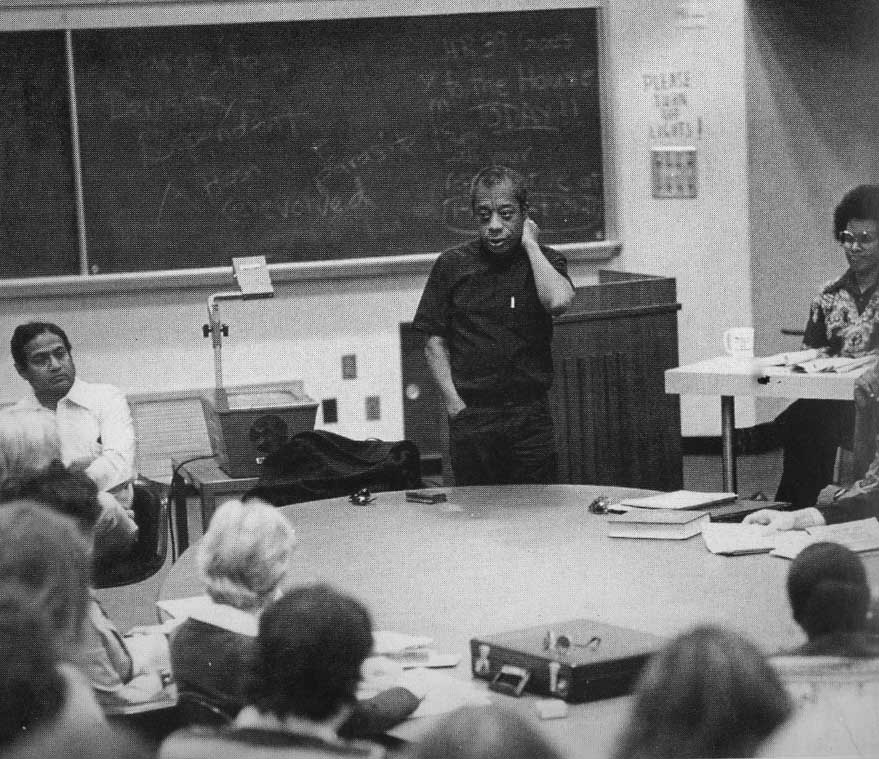
How And Why To Write
The best writing advice contradicts itself, because there are not a finite number of ways to create a masterpiece. Advice about writing is more importantly writing itself, and it defines its own rules and strictures as much as it instructs its adherents directly. In the words of these masters we find the strength to go on. You can find the rest of this series here:
Part One (Joyce Carol Oates, Gene Wolfe, Philip Levine, Thomas Pynchon, Gertrude Stein, Eudora Welty, Don DeLillo, Anton Chekhov, Mavis Gallant, Stanley Elkin)
Part Two (James Baldwin, Henry Miller, Toni Morrison, Kurt Vonnegut Jr., Margaret Atwood, Gertrude Stein, Vladimir Nabokov)
Part Three (W. Somerset Maugham, Langston Hughes, Marguerite Duras, George Orwell, John Ashbery, Susan Sontag, Robert Creeley, John Steinbeck)
Part Four (Flannery O'Connor, Charles Baxter, Joan Didion, William Butler Yeats, Lyn Hejinian, Jean Cocteau, Francine du Plessix Gray, Roberto Bolano)
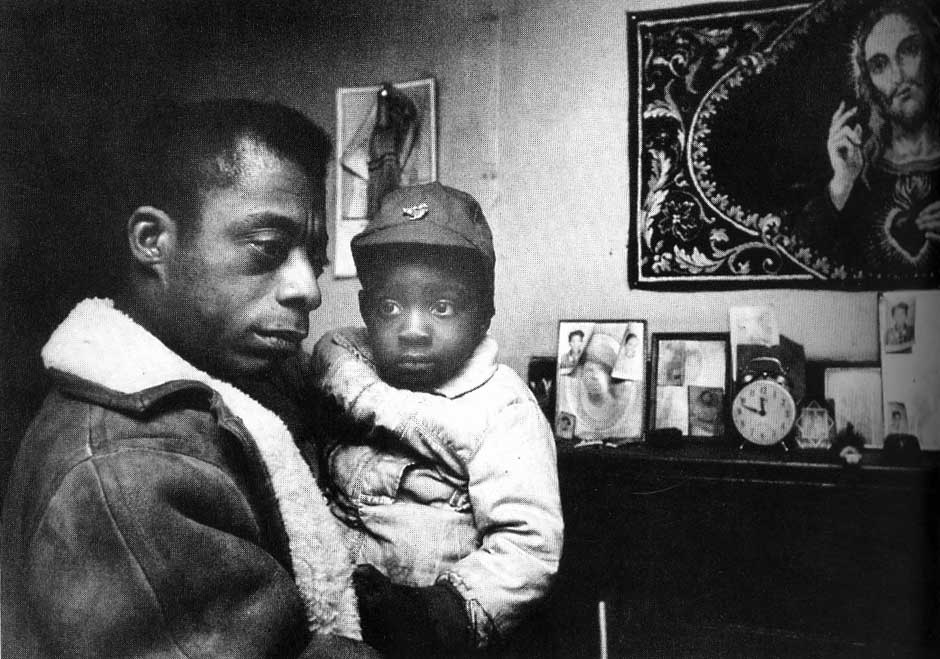
James Baldwin
I don't know if I feel close to them, now. After a time you find, however, that your characters are lost to you, making it quite impossible for you to judge them. When you've finished a novel it means, "The train stops here, you have to get off here." You never get the book you wanted, you settle for the book you get. I've always felt that when a book ended there was something I didn't see, and usually when I remark the discovery it's too late to do anything about it.
It happens when you are right here at the table. The publication date is something else again. It's out of your hands, then. What happens here is that you realize that if you try to redo something, you may wreck everything else. But, if a book has brought you from one place to another, so that you see something you didn't see before, you've arrived at another point. This then is one's consolation, and you know that you must now proceed elsewhere.
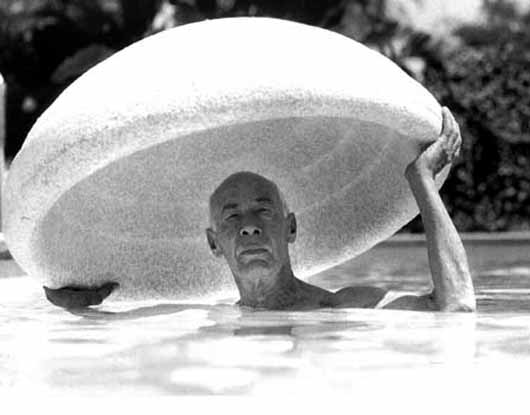 Henry Miller
Henry Miller
Sometimes I would sit at the machine for hours without writing a line. Fired by an idea, often an irrelevant one, my thoughts would come too fast to be transcribed. I would be dragged along at a gallop, like a stricken warrior tied to his chariot.
On the wall at my right there were all sorts of memoranda tacked up: a long list of words, words that bewitched me and which I intended to drag in by the scalp if necessary; reproductions of paintings, by Uccello, della Francesca, Breughel, Giotto, Memling; titles of books from which I meant to deftly lift passages; phrases filched from my favorite authors, not to quote but to remind me how to twist things occasionally; for example: "The worm that would gnaw her bladder" or "the pulp which had glutinized behind his forehead." In the Bible were slips of paper to indicate where gems were to be found. The Bible was a veritable diamond mine. Every time I looked up a passage I became intoxicated. In the dictionary were place marks for lists of kind or another; flowers, birds, trees, reptiles, gems, poisons, and so on. In short, I had fortified myself with a complete arsenal.
But what was the result? Pondering over a word like praxis, for example, or pleroma, my mind would wander like a drunken wasp.
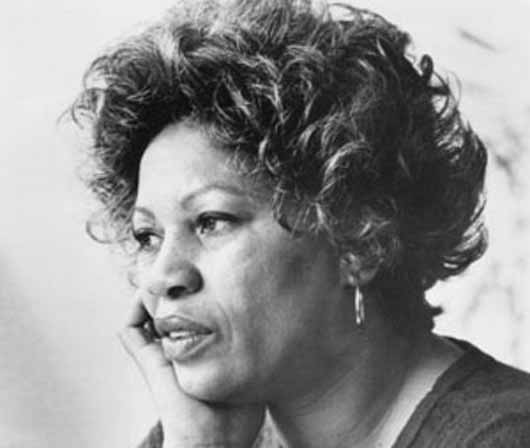
Toni Morrison
Very, very early in the morning, before they got up. I'm not very good at night. I don't generate much. But I'm a very early riser, so I did that, and I did it on weekends. In the summers, the kids would go to my parents in Ohio, where my sister lives - my whole family lives out there — so the whole summer was devoted to writing.
And that's how I got it done. It seems a little frenetic now, but when I think about the lives normal women live — of doing several things — it's the same. They do anything that they can. They organize it. And you learn how to use time. You don't have to learn how to wash the dishes every time you do that. You already know how to do that. So, while you're doing that, you're thinking. You know, it doesn't take up your whole mind. Or just on the subway. I would solve a lot of literary problems just thinking about a character in that packed train, where you can't do anything anyway. Well, you can read the paper, but you're sort of in there.
And then I would think about, well, would she do this? And then sometimes I'd really get something good. By the time I'd arrived at work, I would jot it down so I wouldn't forget. It was a very strong interior life that I developed for the characters, and for myself, because something was always churning. There was no blank time. I don't have to do that anymore. But still, I'm involved in a lot of things, I mean, I don't go out very much.
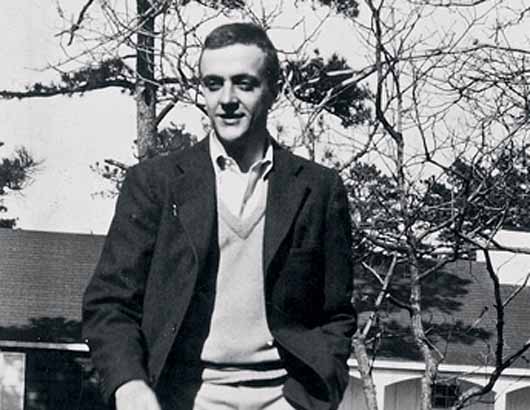
Kurt Vonnegut Jr.
I guarantee you that no modern story scheme, even plotlessness, will give a reader genuine satisfaction, unless one of those old fashioned plots is smuggled in somewhere. I don't praise plots as accurate representations of life, but as ways to keep readers reading. When I used to teach creative writing, I would tell students to make their characters want something right away — even if it's only a glass of water. Characters paralyzed by the meaninglessness of modern life still have to drink water from time to time.
One of my students wrote a story about a nun who got a piece of dental floss stuck between her lower left molars, and who couldn't get it out all day long. I thought that was wonderful. The story dealt with issues a lot more important than dental floss, but what kept readers going was anxiety about when the dental floss would finally be removed. Nobody could read that story without fishing around in his mouth with a finger.
When you exclude plot, when you exclude anyone's wanting anything, you exclude the reader, which is a mean-spirited thing to do. You can also exclude the reader by not telling him immediately where the story is taking place, and who the people are. It's the writer's job to stage confrontations, so the characters will say surprising and revealing things, and educate and entertain us all. If a writer can't or won't do that, he should withdraw from the trade.

Margaret Atwood
1 Take a pencil to write with on aeroplanes. Pens leak. But if the pencil breaks, you can't sharpen it on the plane, because you can't take knives with you. Therefore: take two pencils.
2 If both pencils break, you can do a rough sharpening job with a nail file of the metal or glass type.
3 Take something to write on. Paper is good. In a pinch, pieces of wood or your arm will do.
4 If you're using a computer, always safeguard new text with a memory stick.
5 Do back exercises. Pain is distracting.
6 Hold the reader's attention. (This is likely to work better if you can hold your own.) But you don't know who the reader is, so it's like shooting fish with a slingshot in the dark. What fascinates A will bore the pants off B.
7 You most likely need a thesaurus, a rudimentary grammar book, and a grip on reality. This latter means: there's no free lunch. Writing is work. It's also gambling. You don't get a pension plan. Other people can help you a bit, but essentially you're on your own. Nobody is making you do this: you chose it, so don't whine.
8 You can never read your own book with the innocent anticipation that comes with that first delicious page of a new book, because you wrote the thing. You've been backstage. You've seen how the rabbits were smuggled into the hat. Therefore ask a reading friend or two to look at it before you give it to anyone in the publishing business. This friend should not be someone with whom you have a romantic relationship, unless you want to break up.
9 Don't sit down in the middle of the woods. If you're lost in the plot or blocked, retrace your steps to where you went wrong. Then take the other road. And/or change the person. Change the tense. Change the opening page.
10 Prayer might work. Or reading something else. Or a constant visualisation of the holy grail that is the finished, published version of your resplendent book.
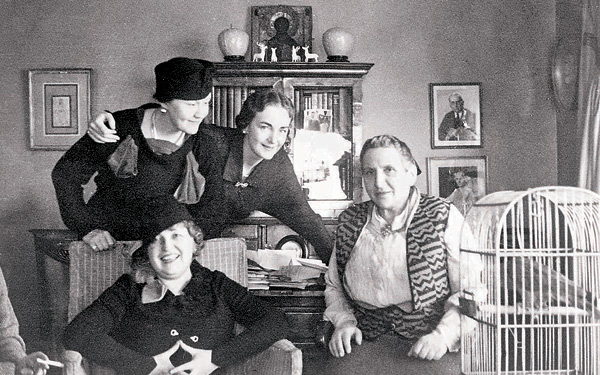
Gertrude Stein
You can tell that so well in the difficulty of writing novels or poetry these days. The tradition has always been that you may more or less describe the things that happen you imagine them of course but you more or less describe the things that happen but nowadays everybody all day long knows what is happening and so what is happening is not really interesting, one knows it by radios cinemas newspapers biographies autobiographies until what is happening does not really thrill any one, it excited them a little bit but does not really thrill them.
The painter can no longer say that what he does is as the world looks to him because he cannot look at the world anymore, it has been photographed too much and he has to say that he does something else. In former times a painter said he painted what he saw of course he didn't but anyway he could say it, now he does not want to say it because seeing it is not interesting.

Vladimir Nabokov
The force and originality involved in the primary spasm of inspiration is directly proportional to the worth of the book the author will write. At the bottom of the scale a very mild kind of thrill can be experienced by a minor writer, noticing, say, the inner connection between a smoking factory chimney, a stunted lilac bush in the yard, and a pale-faced child; but the combination is so simple, the threefold symbol so obvious, the bridge between the images so well-worn by the feet of literary pilgrims and by cartloads of standard ideas, and the world deduced so very like the average one, that the work of fiction set into motion will be necessarily of modest worth.
On the other hand, I would not like to suggest that the initial urge with great writing is always the product of something seen or heard or smelt or tasted or touched during a long-haired art-for-artist's aimless rambles.
Although to develop in one's self the art of forming sudden harmonious patterns out of widely separate threads is never to be despised, and although, as in Marcel Proust's case, the actual idea of a novel may spring from such actual sensations as the melting of a biscuit on the tongue or the roughness of a pavement underfoot, it would be rash to conclude that the creation of all novels ought to be based on a kind of glorified physical experience. The initial urge may disclose as many aspects as there are temperaments and talents; it may be the accumulated series of several practically unconscious shocks or it may be an inspired combination of several abstract ideas without a definite physical background.
But in one way or another the process may still be reduced to the most natural form of creative thrill — a sudden, live image constructed in a flash out of dissimilar units which are apprehended all at once in a stellar explosion of the mind.
Part One (Joyce Carol Oates, Gene Wolfe, Philip Levine, Thomas Pynchon, Gertrude Stein, Eudora Welty, Don DeLillo, Anton Chekhov, Mavis Gallant, Stanley Elkin)
Part Two (James Baldwin, Henry Miller, Toni Morrison, Kurt Vonnegut Jr., Margaret Atwood, Gertrude Stein, Vladimir Nabokov)
Part Three (W. Somerset Maugham, Langston Hughes, Marguerite Duras, George Orwell, John Ashbery, Susan Sontag, Robert Creeley, John Steinbeck)
Part Four (Flannery O'Connor, Charles Baxter, Joan Didion, William Butler Yeats, Lyn Hejinian, Jean Cocteau, Francine du Plessix Gray, Roberto Bolano)
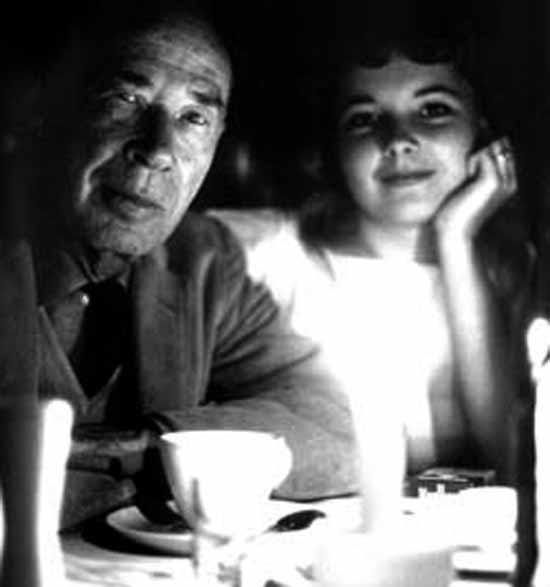 henry miller
henry miller
"I Like What U Do" - Devin the Dude (mp3)
"Gotta Be Me" - Devin the Dude (mp3)
"Gimme Some" - Devin the Dude (mp3)
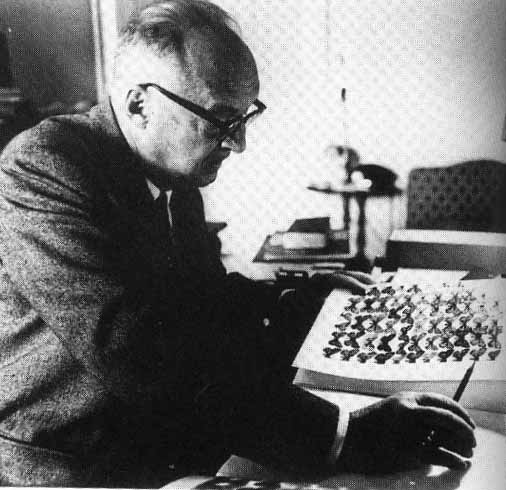






























Reader Comments (4)
I'm really loving this series and I'll be sorry to see it end, but this entry has brightened an otherwise grey and miserable day.
I just randomly found this series and I'm really glad I did. Just even with this last entry, the comprehensive list of writers is amazing, some of whom have sparked my own interest in writing, particularly Margaret Atwood, Henry Miller and James Baldwin. I definitely agree that to have the kind of grit and style that these people have, you have to do the legwork. I have tattered old dictionaries and countless reference books scattered my cave of a writing room. In fact, I've recently had to purchase a new thesaurus just to make up for the fact that my trusty one is destroyed.
Anyway, keep up the good work and I look forward to more posts from this awesome site.
Just a note to let you know about a book blog I’ve started with a different twist: “Writing Kurt Vonnegut.” Every Saturday, I post another excerpt from my notebook as Vonnegut’s biographer— profiles of the people I met, the difficulties encountered, and the surprises, such as finding 1,500 letters he thought he had lost forever. It’s a blog written in episodes about being a literary detective.
“Writing Kurt Vonnegut” is only three weeks old but has already been linked to from GalleyCat, 3 Quarks Daily, the Book Bench, the Rumpus, Identity Theory, Maud Newton, and Litopia. It’s receiving several hundred hits a day.
Perhaps you’d like to give it a look at http://www.writingkurtvonnegut.com
All the best,
Charles J. Shields
And So It Goes: Kurt Vonnegut, A Life (Holt, November 2011)